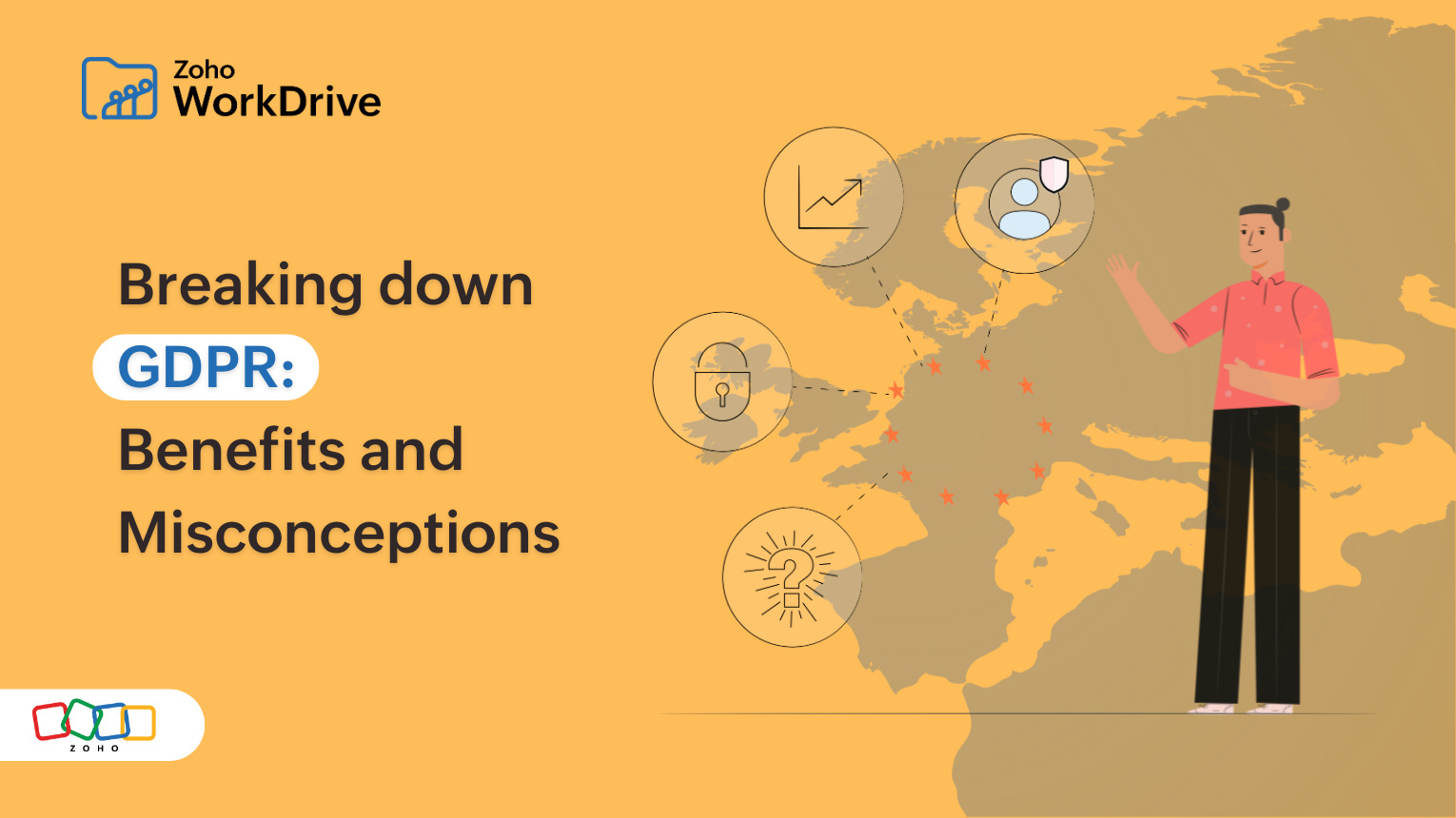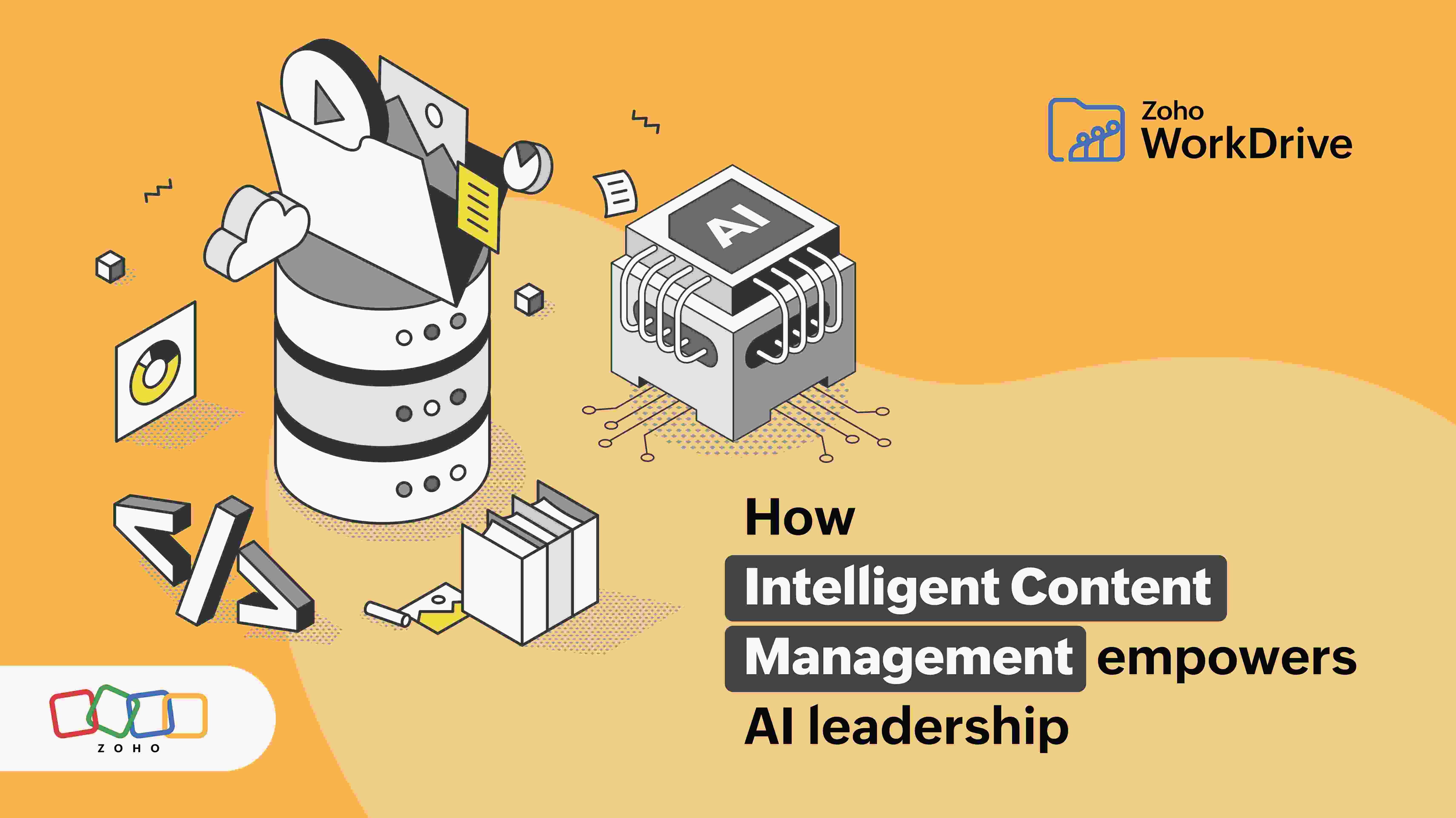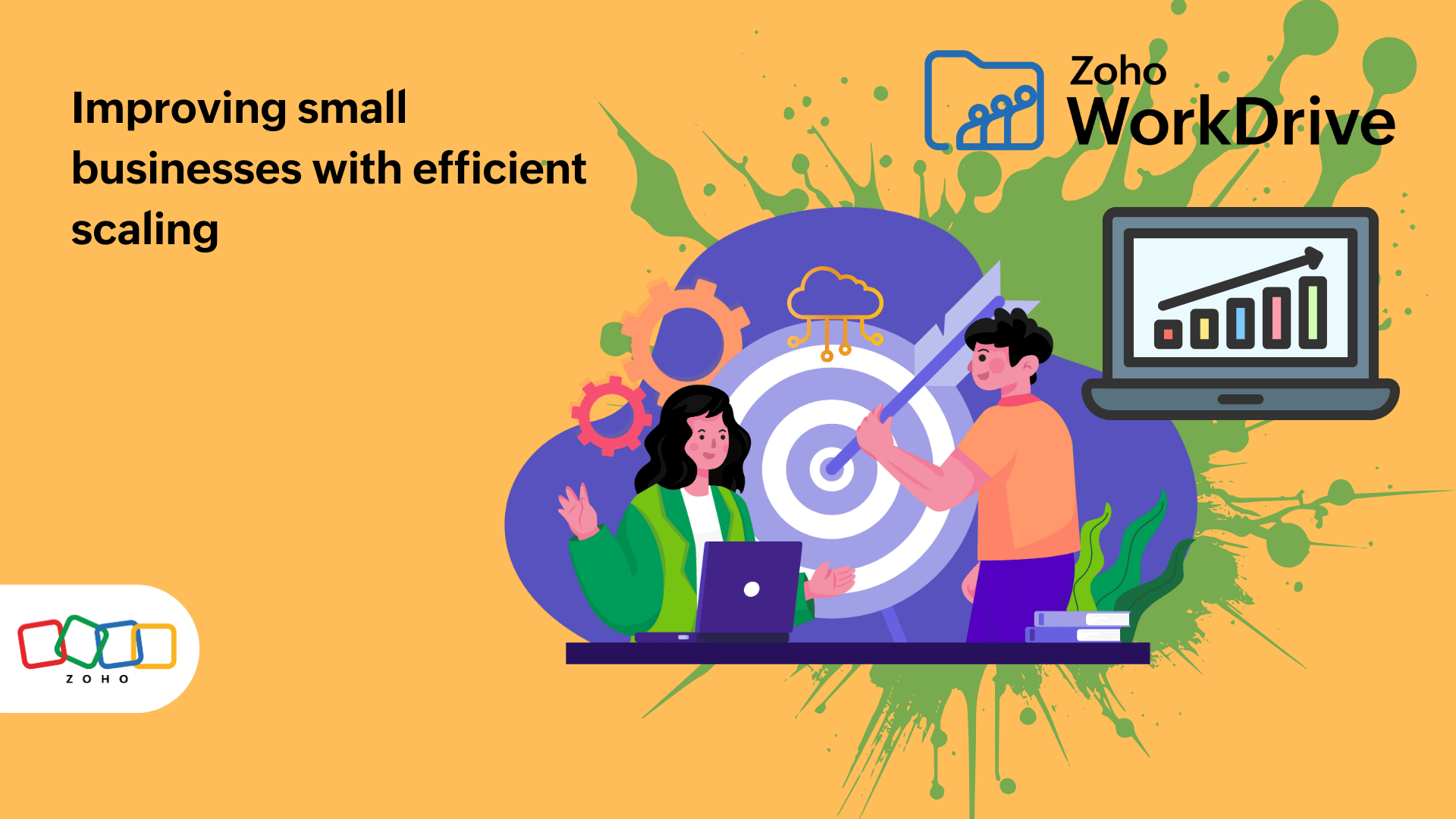- HOME
- Work Culture
- GDPR for businesses: History, benefits, and common misconceptions
GDPR for businesses: History, benefits, and common misconceptions
- Last Updated : April 3, 2024
- 399 Views
- 5 Min Read

Information is a precious resource for businesses. Managing and protecting data is one of the top priorities for every organization, government, and individual. Governments around the world have begun implementing various laws and regulations concerning the storage and processing of data. Although it differs for every country and region, the global market demands companies remain compliant with multiple statutes and maintain a strong commitment to data protection. One important law is GDPR.
What is GDPR?
In effect since May, 2018, GDPR is the statute that lays the guidelines for data security across European Union (EU) and European Economic Area (EEA). The full form of GDPR is "General Data Protection Regulation" and primarily replaced the 1995 Data Protection Directive.
The European Commission defines GDPR as "a regulation to protect the people with regard to the processing and movement of personal data." Besides providing standards for data security, the regulation clarifies rules for businesses in the digital market. GDPR replaced a fragmented system of data security policies in different European countries.
Personal data is broader than PII
GDPR focuses heavily on PII and personal data, which can often be confusing. Personally Identifiable Information (PII) is the direct data that can be used to identify a particular individual. Although GDPR protects this information, its scope is not confined to this single type of data.

The law encompasses a broader set of information, of which PII is only one component. While the former directly deals with data pointing to an individual, the personal data covered by GDPR includes photos, social media posts, location data, online identifiers like usernames or IP addresses, and other data that can be associated with a particular person.
The European Commission lists these examples of personal data:
- Name
- Address
- ID number
- Internet protocol (IP) address
- Location data
Clearing the cloud of clutter: Common misconceptions about GDPR
Now that we've covered what GDPR is and how personal data is defined under this law, let's dive into the common misconceptions about this regulation and learn the truth behind them.
Personal data can be stored as long as a company wants
Although GDPR does not explicitly mention a time period for the storage of Personal data, article 5(1)(e) of mentions the factors that define the fair usage of the data while emphasizing "storage limitation."
Storage limitation guidelines state that data must not be stored for longer than it is needed. Beyond this period, organizations must delete or review and update it. Depending on the type of data, the period varies for each instance.
For example, Germany's Fiscal Code states that according to article 147(3), documents related to accounting, record-keeping, and other financial statements of an individual can be retained by an organization for a maximum period of 10 years.
GDPR only protects EU citizens
One commonly misunderstood concept is that GDPR only protects the data of EU citizens—and that protects them irrespective of where they are. Actually, GDPR applies in any of the following conditions.
- If the company is based in the EU
- If the business requires the processing of personal data of people in the EU.
- If they offer goods or services to people in the EU
This means a business based in Paris is responsible for the protection of customers' data under GDPR, irrespective of their citizenship.
A token of consent is mandatory to process personal data
As a subject of constant misconception, consent is just one way for a controller to process the personal data of an individual. Article 7 of the GDPR clearly defines the term consent, but it is not the only way to lawfully process personal data. GDPR article 6(a) lists five additional ways to process an individual's data.
Apart from a token of consent, the controller can process personal data for:
- The performance of a contract
- Complying with a legal obligation
- Protecting the vital interests of the individual
- Performing a task carried out in public interest
- The purpose of legitimate interests pursued by the controller
What are the benefits of complying with GDPR?
Being compliant with GDPR benefits businesses in numerous ways. Let's have a brief look at five major benefits.
Building trust with customers
Businesses must depend on the customer trust they have built. Showcasing a robust commitment towards protecting the users' personal data is one way to strengthen trust. GDPR compliance requires organizations to appoint a data protection officer (DPO) to overlook the handling and processing of data. This gives customers confidence that the company is a reliable custodian of their data.

Enhancing data handling
Commitment to GDPR demands proper documentation concerning the collection, processing and deletion of personal data. This helps organizations mitigate the redundant, obsolete, and trivial (ROT) files. In short, it will give a clear perspective of all the data that the company holds. The collection and retention of data will be kept at a minimal volume under GDPR, which helps companies optimize their data storage expenditures and overall management of data.
Implementing strategic planning
Having a chief privacy officer (CPO) or data protection officer (DPO) helps ensure companies are compliant and well organized. From the type of data to be collected and the mode of collection to deciding the storage period, everything must be preplanned and well monitored. In a way, this serves as a data loss prevention layer for modern businesses.

Improving market positioning
As an organization grows and evolves, emphasizing its strength in cybersecurity, data protection, and compliance can help it stand out from competitors and achieve a better position in the market.
Reducing costs and maximizing return on investment
GDPR mandates that organizations retain information only as long as necessary. This means old data must be removed from the company's database, ensuring records are kept up to date and enabling reduced storage costs. Keeping data about users current will also give marketers a clear picture of the customer base. This helps them make informed decisions and generate better ROI from their campaigns.

Winding up
GDPR compliance can ultimately help enterprises gain a better understanding of their data, align their data management practices with their business needs, and implement the right data storage solution. One final point to remember is that compliance is an ongoing process, and not a one-time accomplishment. Companies' approach to data protection will need to continue evolving to keep up with changes in technology and business practices.
Checkout our other blogs on HIPAA and business compliance.














